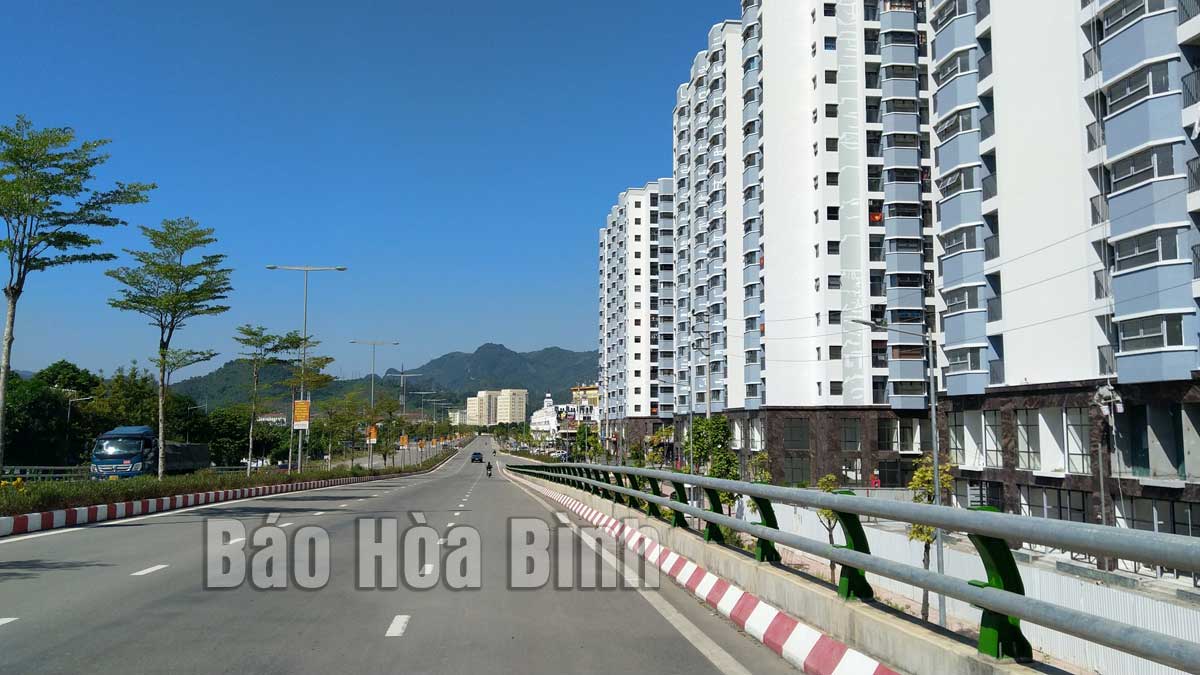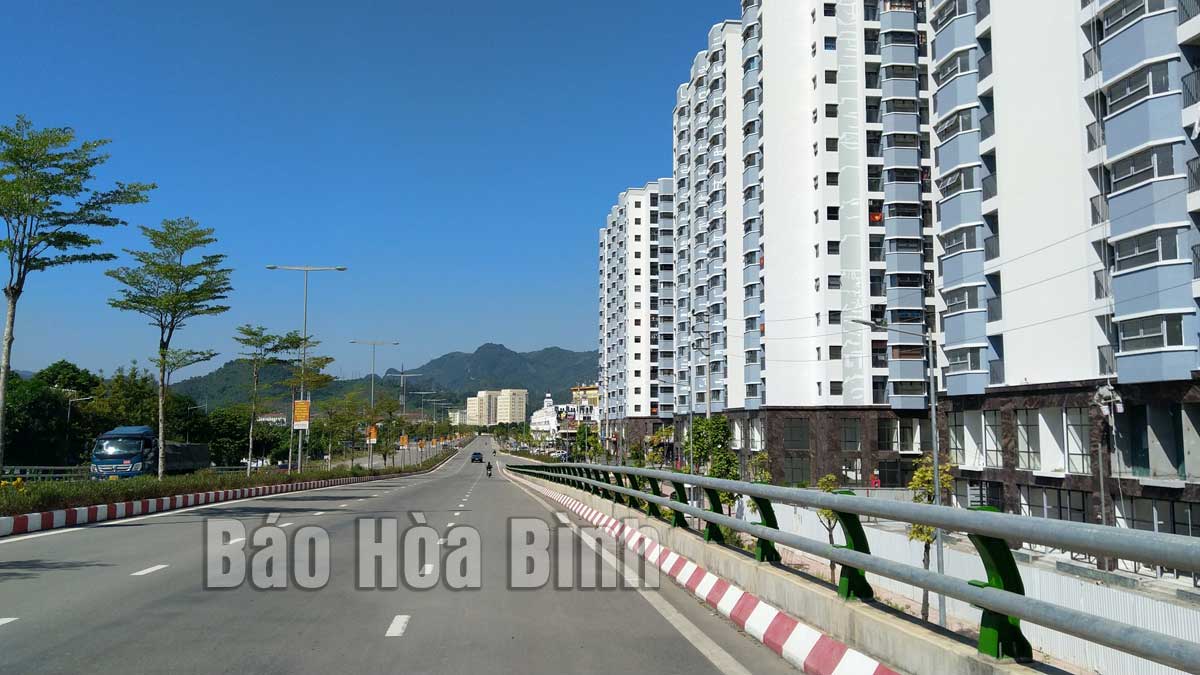
(HBO) – Hoa Binh province has taken drastic, strong solutions to push ahead with the disbursement of public investment, and speed up the implementation of important projects, especially those on infrastructure.
The road linking National Highway 6 with
Chi Lang Road in Hoa Binh city opens up new urban development space and helps
to spur local socio-economic development.
The investment capital sourced from the State
budget and assigned by the Prime Minister to Hoa Binh this year stands at 4.48
trillion VND (190.17 million USD). Meanwhile, the amount approved by the
provincial People’s Council is 5.24 trillion VND, which has been allocated to
projects.
As of October 31, 2022, some 2.25 trillion VND
in public investment had been disbursed, completing 51% of the target set by
the PM.
Apart from effectively using the State budget,
the province has mobilised capital sources for key infrastructure projects,
with priorities given to major areas, inte-regional transport infrastructure,
rural transport, infrastructure at industrial parks and clusters, urban areas
and tourist destinations.
Under the strategy on the development of
industrial parks and clusters in Hoa Binh province for 2021-2030 with a vision
towards 2050, the locality will have eight industrial parks with a total area
of over 1,507 hectares.
There will be four new industrial parks in Cao
Phong, Yen Thuy, Lac Son and Da Bac districts, covering 1,493 hectares, raising
the total number to 12 with a combined area of around 3,000 hectares.
Since the beginning of this year, Hoa Binh has
counted 722 valid projects that do not use the State budget, of which 37 are
foreign-invested worth 608 million USD, and 685 are invested by domestic firms
with 180.58 trillion VND./.
According to data from the Hoa Binh Provincial Party Committee, the industrial production index for the first six months of 2025 is estimated to have increased by 20% compared to the same period last year. This marks the highest year-on-year growth rate for this period since 2020.
In the first six months of 2025, Hoa Binh province’s export turnover was estimated at 1.145 billion USD, marking an 18.11% increase compared to the same period in 2024. Import turnover was estimated at $ 804 million, a 17.15% increase, which helped the province maintain a positive trade balance.
The lives of the ethnic minority farmers in Tan Lac district have gradually improved thanks to the new directions in agricultural production. This is a testament to the collective strength fostered through the professional associations and groups implemented by various levels of the district’s Farmers’ Union.
With the motto the "product quality comes first,” after nearly one year of establishment and operation, Muong village’s Clean Food Agricultural and Commercial Cooperative, located in Cau Hamlet, Hung Son Commune (Kim Boi district), has launched reputable, high-quality agricultural products to the market that are well-received by consumers. The products such as Muong village’s pork sausage, salt-cured chicken, and salt-cured pork hocks have gradually carved out a place in the market and they are on the path to obtaining the OCOP certification.
In the past, the phrase "bumper harvest, rock-bottom prices" was a familiar refrain for Vietnamese farmers engaged in fragmented, small-scale agriculture. But today, a new spirit is emerging across rural areas of Hoa Binh province - one of collaboration, organisation, and collective economic models that provide a stable foundation for production.
Maintaining growing area codes and packing facility codes in accordance with regulations is a mandatory requirement for agricultural products to be eligible for export. Recently, the Department of Agriculture and Environment of Hoa Binh province has intensified technical supervision of designated farming areas and packing facilities to safeguard the "green passport" that enables its products to access international markets.



